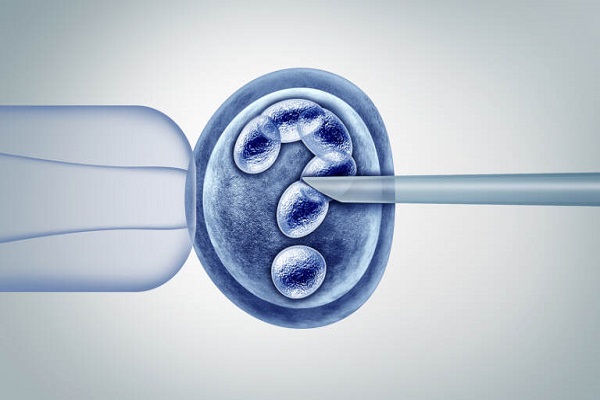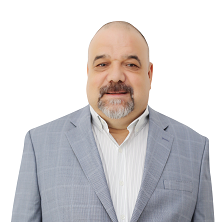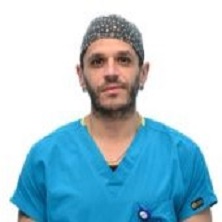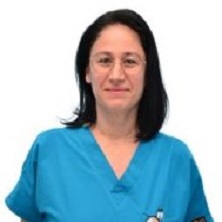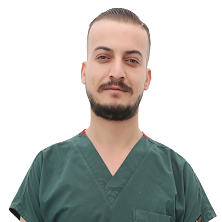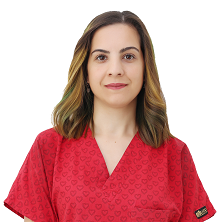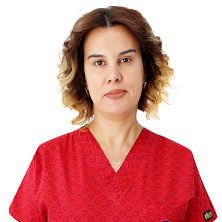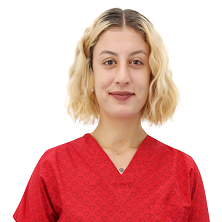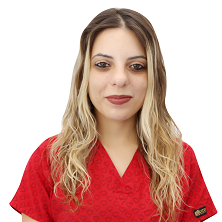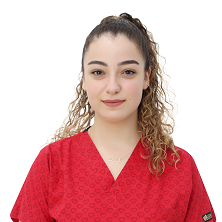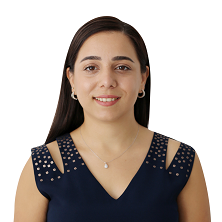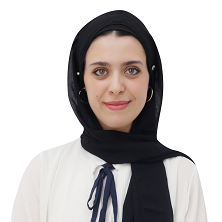1) PGD Genetic Test
PGD is the process of selecting only healthy embryos and transferring them to the mother after genetic testing of embryos is performed during in vitro fertilization.
PGD process starts with IVF treatment, regardless of whether couples have children before or not. With the reproductive cells of the mother and father, the fertilization process is carried out and the embryo is formed. The created embryo is left to develop in special incubators for 3 days after fertilization. On the 3rd day of fertilization, a single cell biopsy is taken from the embryo, which has divided into 8 cells. As a result of the DNA molecular analysis of the cell biopsies taken in our genetic laboratories, it is clearly determined whether there is an abnormal gene or not. Thus, the genetic health of the embryo is seen. Especially in single gene problems, PGD can be diagnosed very early. In addition, conditions such as chromosome excess or deficiency are detected during the embryonic period. Since the embryo with an abnormal structure detected by this method will not be transferred to the mother's womb, the problems that it will experience throughout its life are prevented at the very beginning.
The genetic screening process allows the separation of the X and Y chromosomes that determine the sex, and the determination of single gene diseases (13,18, and 21 Chromosomes). The reliability of the test result leads many expectant mothers and fathers to receive PGD treatment. In addition to identifying a genetically healthy baby, PGD also minimizes some of the negativities that may be encountered during IVF treatment.
Other benefits of the PGD process:Mother and father candidates considering PGD treatment first start in vitro fertilization treatment. The procedure is the same as in vitro fertilization. The only difference is the genetic testing performed on the third day of embryos before the transfer day. For Mother and Father candidates, PGD process is a method that can also be used in egg, sperm and embryo donation treatments.
Chromosomal disorders that can be detected with PGD:2) Next-Generation Sequencing (NGS)
It is extremely important that the embryos obtained in IVF treatments are successfully transferred to the uterus. However, in some cases, pregnancy may not be achieved. One of the most important reasons why a healthy pregnancy could not be achieved despite embryo transfer in the treatment was determined as chromosomal disorders in the embryos. In order to obtain a healthy and successful result in IVF treatments, it is necessary to analyze the embryos in detail and to detect chromosomal abnormalities.
NGS method is a newly developed genetic analysis technology that enables comprehensive chromosome screening in embryos. The NGS method allows all embryos to be screened in a short time. With NGS, which provides a fast and detailed screening opportunity, problems related to chromosomes are diagnosed before pregnancy. With the NGS test, all 24 chromosomes are screened.
What are the Features of NGS Technique?Chromosomal abnormalities are determined by screening with the NGS method. Embryos containing two or more cell aggregates with different chromosomal structures are called “mosaic embryos”. Mosaic embryos are detected more easily with the NGS technique. After these chromosomal abnormalities detected by NGS test are detected in a sensitive and detailed way, they are included in the treatment planning and the process is advanced. Compared to the different PGT methods applied and known to date, the NGS method provides a high-density scanning area, enabling the detection of even some genetic disorders as well as numerical changes occurring in chromosomes.
What Genetic Defects Can Be Detected with NGS-Based PGS?Embryos obtained in IVF treatment are evaluated according to various criteria in terms of their characteristics, and a healthy result is tried to be obtained by transferring the embryo with the best developmental characteristics to the uterus. Examining the developmental features of the embryo under the microscope with classical methods does not give clear information about the chromosomal status of the embryo. This information can only be obtained by genetic screening with PGS. Even if the embryos have a high quality structure, they may contain various chromosomal problems, and this may lead to problems such as early miscarriage, some structural disorders in the developing fetus, or the embryo not attaching to the uterus.
The main purpose of using the PGS method, which is an NGS-based method, is to increase the adhesion of the embryo, which is found to have a chromosomally normal structure, to the uterus, to reduce the possibility of subsequent miscarriage, and as a result, to increase the likelihood of couples having a healthy baby.
The PGS process starts with the combination of the egg taken from the mother-to-be and the sperm taken from the father-to-be outside the body. A few cells are biopsied from the embryos formed on the 5th or 6th day of development, while they are in the blastocyst stage without damaging the embryo. The embryos are frozen while these cells are sent to the genetic laboratory for 24 chromosome screening. At the end of this examination, the embryo or embryos, whose genetic structure is determined to be healthy, are transferred after the completion of the intrauterine preparation, and pregnancy results that reach higher rates are obtained.
To summarize briefly; NGS-based PGS is a genetic screening method and can be used to detect numerical and structural imbalances in chromosomes. However, single gene diseases with familial inheritance cannot be detected with the PGS method.
Who are the NGS Applicable Patient Groups?The patient groups that NGS is suitable for can be listed as follows;
NGS method, which is a rapidly developing field, is actively used in many countries today with the opportunities it provides and its facilitating and accelerating effects for the process.
What are the Advantages of Preimplantation Genetic Screening with NGS?NGS, a new genetic analysis method used in 24-chromosome screening in embryos, provides both numerical and structural analysis and sequencing of the entire human genome in a short period of time, such as a single day. In this respect, it offers us a revolutionary technology. The improved NGS method can detect mosaic embryos better than other PGT methods. The biggest advantages of Preimplantaston Genetic Screening with NGS are that it provides an environment for rapid screening of a wide range of genes both numerically and structurally. In addition to scanning gene areas numerically and structurally, NGS method also has advantages such as obtaining more precise results with a low margin of error, faster results and lower cost. With this method, it is also possible to examine single gene diseases and simultaneously scan 24 chromosomes with HLA typing.
